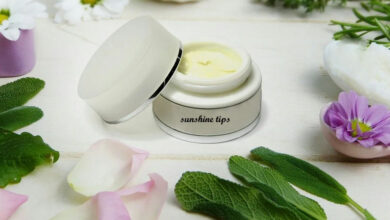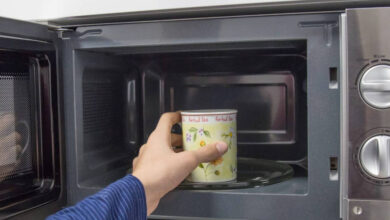Why basement mold is making us sick?
Damp basement is a common home problem, but it can make you sick?

Why basement mold is making us sick? Mold is a corrosive agent. Mold is actively feeding on and breaking down the material it lives on, such as your basement, when it is actively developing. This is why getting rid of mould in your basement is so vital from a structural standpoint.
Table of Contents
Why basement mold is making us sick?
Mold, on the other hand, is hazardous to your family’s health. If you have a mouldy basement, you are in danger of developing a respiratory illness. Coughs, asthma, nose and throat problems, and shortness of breath are among them. But it doesn’t end there: you might also experience physical issues like headaches and skin irritations.
If your home has damp or mould, you’ll want to know if your indoor air quality has been impacted and if you and your family are at risk of developing respiratory problems in the future.
Some people are immune to the health risks of basement mould than others, so keep reading to see how you may help those who are at risk. In particular, we’ll look at ways to lower your chance of becoming unwell as a result of mould, such as ventilating your home, reducing the occurrence of dampness, and using a dehumidifier.
The National Institute of Environmental Health Sciences (NIEHS) describes the most common varieties of basement mould, some of which might be harmful to your health. Alternaria – a fast-growing brown-black mold that can cause serious infections – and Stachybotrys chartarum – a deadly black mould that thrives on wet building materials like wood and wallpaper – are two examples. Aspergillus, a form of mould that may be extremely harmful to persons with low immune systems or respiratory disorders like asthma, is a bit rarer.
When exposed to airborne mould particles, anyone – allergy sufferers or not – can experience eye, skin, nose, throat, and lung discomfort, according to the American Lung Foundation, with symptoms including:
- Asthma gets worse
- Wheezing Coughing
- Congestion in the nose
- Sneezing Throat Soreness Rhinitis
Basement mold, on the other hand, can have far-reaching consequences. Many of the many kinds of mould that may be found in a basement or elsewhere in the home are cytotoxic, neurotoxic, and immunotoxic, according to Indoor Environment Health Consultant John McBride. This implies they can destroy cells and impair the brain and immune systems’ ability to function.
Always seek expert guidance if you or someone else is concerned that exposure to wet or mould is causing illness.
Who is at risk from mold in the basement?
So, who is at the most risk of being ill as a result of basement mould? “There is a misconception that someone is allergic to mould,” McBride told Live Science. “In actuality, there is a multitude of reasons someone can be affected.”
According to a study published in the Frontiers in Immunology journal, the factors that contribute to dampness and mould hypersensitivity syndrome (DMHS) could include a combination of:
- Predisposition due to genetics
- Over the course of a person’s life, the total amount of time they have been exposed to.
- When someone was initially exposed to hazardous mould microorganisms, how old they were.
What we do learn is that babies and children, the elderly, persons with existing skin disorders such as dermatitis and lung problems such as allergies, and people with a low or compromised immune system are more susceptible to becoming ill as a result of basement mould.
“Remember that long-term low-dose exposure can be just as hazardous as short-term high-dose exposure,” McBride said. “Because basement mould can make you sick, it’s critical that you do everything you can to decrease moisture and prevent mould from forming.”
If you believe you may be at risk, it’s critical to speak with a medical expert about your concerns.
Mold Sickness: How to prevent it?
“The most essential thing to avoid becoming sick from basement mould is to deal with it right away,” McBride added. “Remember, mould doesn’t just develop in basements; it may also thrive behind baseboard heaters, between walls, and in attics. Mold may grow anyplace there is moisture, which is why HVAC (heating, ventilation, and air conditioning) systems are renowned for causing mould problems.”
Because mould can grow within 24 hours of an area being wet, McBride recommends addressing the source of any extra moisture in your home – whether its condensation or a leak – to reduce the risk of long-term exposure. When you figure out what’s causing the damp, you may make the necessary home repairs.
You may need to hire a professional to remove the mould, but if the amount is minor, you may be able to handle it yourself. If you do decide to attack mould patches on your own, don an N-95 mask (available at hardware stores), disposable gloves, and goggles to safeguard your health from dangerous mould bacteria.
“Fungicides can be just as hazardous as mould, so I’d clean the area with a regular home detergent,” McBride told Live Science. “Any things that have been contaminated must also be contained and decontaminated.” To reduce the spread of hazardous bacteria, for example, storage boxes, furniture, or documents are used. You can use a dehumidifier to help prevent mould, but keep in mind that these can grow mould as well, so be sure to keep an eye on it.”
Increase airflow and ventilation by opening windows and doors and installing extraction fans in the basement, bathroom, and kitchen, among other preventative actions aimed at minimising moisture levels in the home.
How do I clean the air in my house and a damp, moldy basement?
Make sure your basement is waterproofed against exterior water seepage or leaks to avoid getting sick from mould.
Second, ensure that any water lines that may generate condensation and moisture are properly insulated.
Third, if you wash laundry in the basement, make sure it’s well aired so the hot, humid air doesn’t create a breeding ground for mould.
Last but not least, contact Basement Waterproofing. We offer tried-and-true solutions that will keep your basement dry and allow your family to breathe better.
Basement Waterproofing is trained in the installation of whole-house humidification systems that regulate air temperature and moisture levels. There are no buckets to empty or filters to replace. For years to come, your energy expenses will be lower, and your family will breathe cleaner air.




